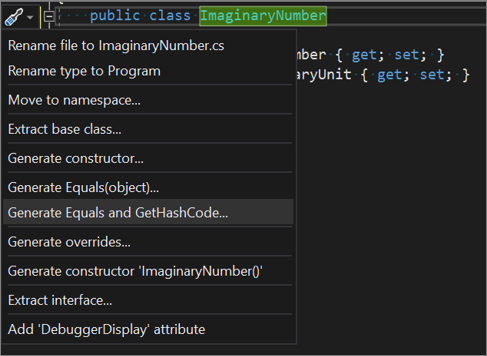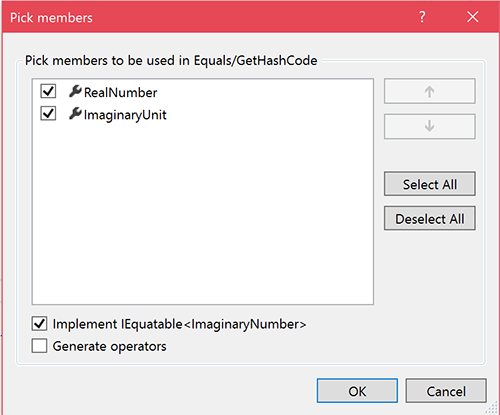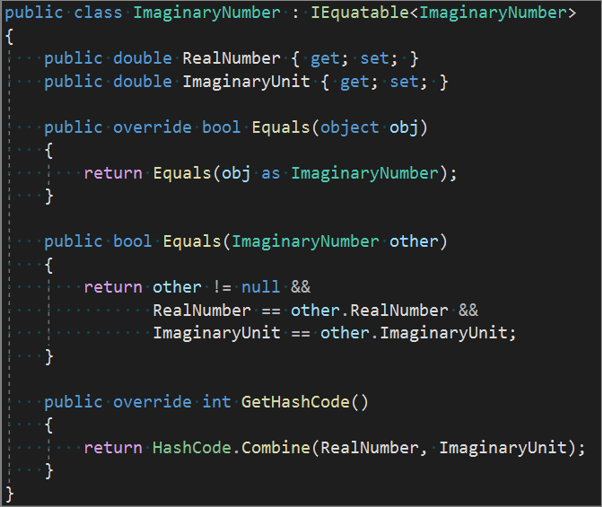Note
Access to this page requires authorization. You can try signing in or changing directories.
Access to this page requires authorization. You can try changing directories.
This code generation applies to:
- C#
What: Lets you generate Equals and GetHashCode methods.
When: Generate these overrides when you have a type that should be compared by one or more fields, instead of by object location in memory.
Why:
If you're implementing a value type, you should consider overriding the Equals method. You can gain increased performance over the default implementation of the Equals method on ValueType when you do so.
If you're implementing a reference type, you should consider overriding the Equals method if your type looks like a base type, such as Point, String, BigNumber, and so on.
Override the GetHashCode method to allow a type to work correctly in a hash table. Read more guidance on equality operators.
How-to
Place your cursor somewhere on the line of your type declaration.
public class ImaginaryNumber { public double RealNumber { get; set; } public double ImaginaryUnit { get; set; } }Your code should look similar to the following screenshot:

Tip
Do not double-click select the type name, or the menu option won't be available. Just place the cursor somewhere on the line.
Next, choose one of the following actions:
Press Ctrl+. to trigger the Quick Actions and Refactorings menu.
Right-click and select the Quick Actions and Refactorings menu.
Click the
 icon that appears in the left margin.
icon that appears in the left margin.
In the drop-down menu, select Generate Equals(object) or Generate Equals and GetHashCode.

In the Pick members dialog box, select the members you want to generate the methods for:

Tip
You can also choose to generate operators from this dialog by using the checkbox near the bottom of the dialog.
The
EqualsandGetHashCodemethods are generated with default implementations, as shown in the following code:public class ImaginaryNumber : IEquatable<ImaginaryNumber> { public double RealNumber { get; set; } public double ImaginaryUnit { get; set; } public override bool Equals(object obj) { return Equals(obj as ImaginaryNumber); } public bool Equals(ImaginaryNumber other) { return other != null && RealNumber == other.RealNumber && ImaginaryUnit == other.ImaginaryUnit; } public override int GetHashCode() { return HashCode.Combine(RealNumber, ImaginaryUnit); } }Your code should look similar to the following screenshot:
